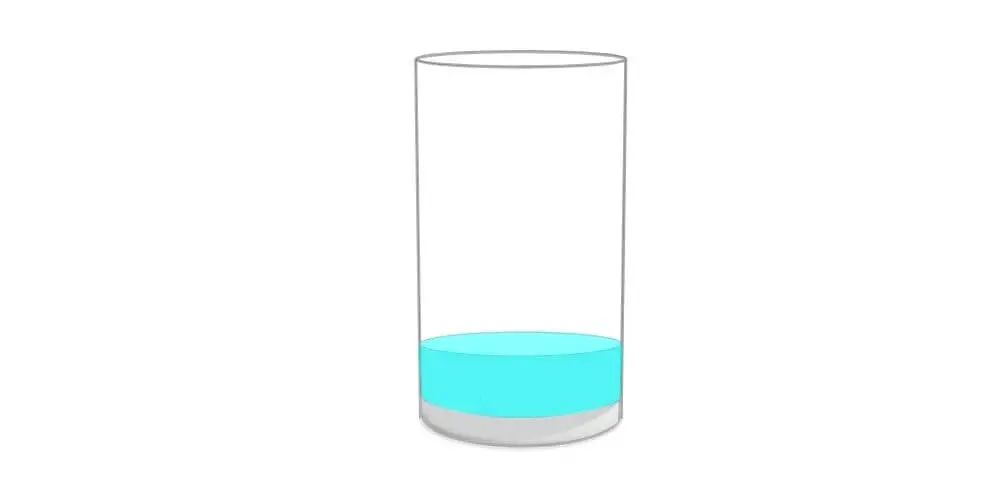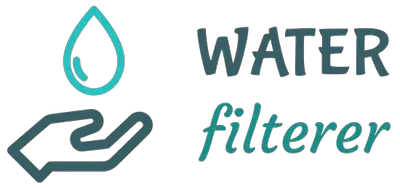Could the water you drink be making you sick? It seems like a crazy question, but it’s one that more and more homeowners are asking as they learn about the dangers of drinking softened water.

In a majority of cases, water softening systems are safe and most people can drink either hard or soft water without any side effects.
However, there are some theoretical concerns about the health effects of softened water.
Softened water has been known to cause health problems ranging from skin irritation with sensitive skin to respiratory issues, so if you’re concerned about the quality of your drinking water, it’s important to understand how softening works and what types of systems are available to you.
Keep reading to learn more!
What is softened water?
Softened water is very similar to distilled water, as it has most of the minerals and chemicals removed. The difference between softening and distilling is that softening uses a salt-based system to remove these minerals from your water, whereas distilling simply evaporates the water and leaves behind all of the contaminants.
Distilled water may be slightly better for you due to its lack of sodium, but both types have been known to cause health problems for people who drink them on a regular basis.
How does one soften their water?
There are several different methods used to soften your drinking water, each with its own advantages and disadvantages:
Salt Based – This type of system works by running your tap water through a brine tank. A solution of water and sodium is put into the tank, and as your tap water flows through it, the minerals are forcibly bonded to the sodium molecules, replacing them in the water.
The advantage to this type of system is that it’s one of the most affordable types on the market and easy to maintain. Unfortunately, there has been some controversy over whether or not salt-based units actually work as effectively as they claim to.
Salt-based systems can also cause a buildup of salt inside your home if you’re on a well system, which leads to scaling issues with your appliances down the line.
Electrolytic – Also known as “catalytic”, electrolytic systems use an electrical current to break apart mineral molecules, effectively removing them from the water.
Unlike salt-based systems, electrolytic softeners don’t use sodium to remove the minerals; instead they use potassium or even hydrogen to bond with the molecules and take their place.
While this system is more expensive than a salt-based unit, it does allow you to control the hardness of your water and doesn’t leave behind any additional salts or chemicals.
Resin – Resin systems work similarly to an electrolytic system in that they break apart mineral molecules using electricity, but resin units also contain positively and negatively charged beads which attract either positively or negatively charged particles respectively before breaking them down into smaller particles.
The advantage of these types of systems is that resin can be regenerated by simply running it through a hot cycle.
Magnetic – Magnetic units are the most expensive of all three, but they also work by breaking down minerals with a magnetic charge . They’re relatively new on the market and aren’t always reliable, but some homeowners love them because they never need maintenance or salt.
Reverse Osmosis – Reverse osmosis systems filter your water through a series of membranes and filters to remove the minerals and contaminants from your water. While this system is more expensive than others, it gives you complete control over how hard or soft you want your water to be.
You also don’t have to worry about salt build-up as the membrane only allows pure, clean water through.
Reverse osmosis systems can be either “on demand” or “point of use”. On demand systems run filtered water directly from their faucet or spout, while point of use models store the filtered water in a separate tank for use at a later time. These large tanks typically need their own space under your sink and must be refilled fairly often.
As you can see, each system has its own advantages and disadvantages
If you’re concerned about the health effects of softened water, talk to your local water treatment specialist or buy a home testing kit. You can also simply switch to bottled or filtered water to avoid the issue altogether.
Is soft water better for your skin?
Soft water can be a great way to improve your overall skincare routine, but it’s important to understand what to expect before making the switch. The biggest advantage is that soaps and shampoos are designed to work with soft water, meaning most of the hard minerals are removed by the time they hit your hair or skin
This can greatly improve their overall effectiveness because you’re not left with any residue or buildup on your skin that could cause irritation.
With softened water, you won’t have to worry about harsh chemical build-up on your skin, which means you should see a reduction in rashes and bumps.
However, it’s worth noting that the minerals in hard water also help leave your skin feeling soft and smooth; when they’re removed, this effect is gone as well
Final Thoughts
If you’re concerned about the health effects of softened water, talk to your local water treatment specialist or buy a home testing kit. You can also simply switch to bottled or filtered water to avoid the issue altogether.
Softened water can be great for your hair and skin, but you should always understand the pros and cons before making the switch.
If you want to remove the minerals and contaminants from your water, a reverse osmosis system is your best option.

